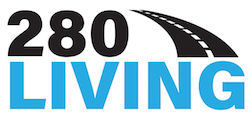1 of 2

Photos by Erin Nelson.
LaDarius McShan, a junior, hands a cup of coffee to Vicki Jackson, an algebra and geometry teacher, as he fulfills coffee orders through the Peer Assisted Learning Systems program coffee cart.
2 of 2

Photos by Erin Nelson.
Michelle Ruggerio helps Collin Kimbrell with his lunch through the PALS program at Oak Mountain High School.
Beginning in ninth grade, students in the Peer Helpers program at Oak Mountain High School can become part of the Peer Assisted Learning Systems program, or PALS for short.
Taylor Korson, a special education teacher in a self-contained classroom in her fourth year at OMHS, is over the PALS program.
She explained the two types of formats of PALS. One is where the peer-helper student PALS go into the classroom for an entire period each day, while others are in the PALS Club, which is for those students who don’t have room in their schedule to be in Korson’s room for an entire period.
PALS are all Peer Helpers, but not all Peer Helpers are PALS.
“I'm on their schedule and I'm their teacher for that period,” Korson said. “Their expectations are to work with the kids, remain confidential and be present. It’s an important portion of their day — having the Peer Helper PALS come in.”
Korson said the goal is that her students have a good relationship with other peers in the school. Since most of the special education takes place in the classroom, they only leave for lunch and electives. It’s a time to socialize while also getting help from fellow students.
“Some of the PALS like to do things outside school with them, and it’s been cool to watch their relationships,” Korson said. “While many kids have ‘early out,’ during which they can leave after sixth period, our PALS elect to stay on campus a whole extra hour to be in this class, which to me is kind of special.”
There are three self-contained classes at OMHS with students who have a wide variety of disabilities. Korson’s classroom has students from 11th grade through age 21 and anywhere from three to five PALS in her room at any time throughout the day. There are 25 Peer Helper PALS who take part in the program, which has been in place at OMHS for over six years.
Korson said when she was a student at Hoover High School, she worked in a similar program and that’s where her passion comes from. She has been in her role since January 2019, after graduating from Mississippi State.
“I signed up for Peer Helpers thinking I would work with elementary kids,” she said. “I walked in my freshman year and it was a self-contained class. I did that all four years of high school, which developed my love for disabled people. I always knew I wanted to be a teacher.”
“My classroom focuses on job skills, so I’m trying to help my students be as independent as possible,” she said. “The plan for their future looks different for each of them.”
Her students pair their PALS to work on job skills, including working in the lunchroom wiping tables, stocking chips and organizing food by expiration dates. On Fridays, they run a coffee cart where teachers can place online orders and the PALS and Peer Helpers work together to take and fulfill the orders.
The money made from the sales goes back into the program to keep it going. It also helps fund field trips that aren’t job-based and other things, including the prom students attend each spring.
Korson said most of her students have a favorite Peer Helper, and they light up each day when the Helpers come into their classroom.
Diana is one of the students in Korson’s class. She said that she likes her Peer Helper PALS coloring with and helping her with work that is hard. She enjoys working the coffee cart and hopes to work at Publix one day like her brother
Lauren Duncan is a senior PALS member. Her sister was in the program before her and she has another sister who has Down syndrome.
“I feel like I had a lot of experience with it and was really interested in being part of the program,” Duncan said. “I enjoy it a lot and think it's really fun. It’s something I look forward to every week and being able to hang out with them and help them out is really fun.”
Korson’s favorite part of her job is seeing her students acquire new skills that will make their life easier when they graduate.
“When their parents are stressed about what their child’s future is going to look like, I get to come in and say ‘It’s OK.’ We partner with the Alabama Department of Rehabilitation Services to work on setting students for success.”
The students have an outdoor garden that they tend and the herbs they grow are used by Taziki’s, who also offers internships so they can gain job experience.
There are students from every stage at OMHS and Korson said it's cool to see their love for her kids.
“The goal is they will go out in the world and in 5 to 10 years encourage people to work to hire people with disabilities,” she said.
